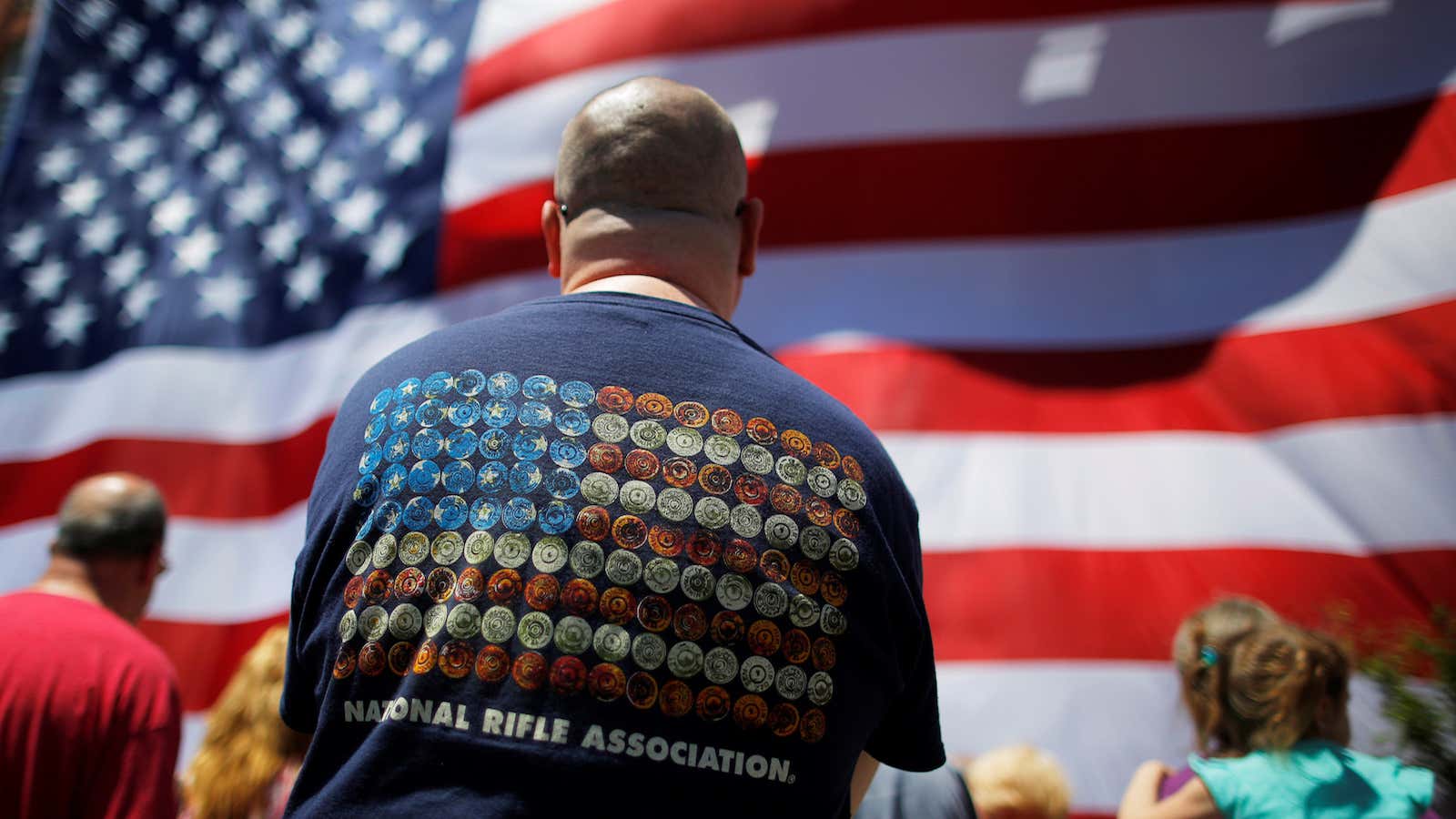I spent my career in the CIA tackling some of the most serious national-security issues confronting the United States. For many years, I worked toward protecting our democracy, our citizens, and our nation against threats emanating from abroad: I was one of the first analysts on the Afghanistan Task Force at the beginning of the war, ran counter-extremism programs overseas, and served as a global counter-terrorism advisor in the White House, among other national-security roles.
But today, the fear that keeps me up at night—the only threat I have ever truly believed could unravel our imperfect democratic dream—comes from within.
That threat is our own hatred of and lack of empathy for our fellow citizens.
This is not a threat we can leave to the government to “handle” or “fix.” We want our politicians to put country before party; our public servants and military to put service before self. We ask them to protect our democracy, our “way of life,” our fellow citizens. Why aren’t we asking the same of everyone else?
It’s up to us. The level of poisonous polarization ripping our country apart threatens to stifle our ability to advance solutions to any of the challenges we face as a country. For the survival of our nation, we must push ourselves to see the humanity in our fellow citizens, regardless of which side of the political spectrum they fall.
I learned the power of listening early in my career. When engaging with anti-Western clerics and suspected extremists overseas, the only way to succeed was to do the difficult work of building relationships and trust with people who had vastly different points of view.
I learned this first-hand from a man who spent years in jail on suspicion of harboring the terrorist responsible for the 1998 attacks against our East Africa embassies. He came to a town-hall meeting in Kenya, where I was invited to speak to build bridges with the local community. Rather than verbally attacking me, he publicly thanked me for my willingness to be present. I was supposed to feel hostile, or at the very least indifferent, toward him. Instead, I struggled with the fact that this man’s words comforted me, that his demeanor put me at ease, that his forgiveness demonstrated the potential for common ground to all those present. While I still deeply question his past actions, that interaction demonstrated the power of civil dialogue.
These experiences often left me feeling deeply conflicted: At times I felt empathy for people I had been taught to fear, and even loathe. But that was returned in kind, especially when we needed some of these same people years later to help us rescue an American life.
As I’ve watched the polarization in the United States tear at the very fabric of our society, I have questioned how we can apply these same lessons to our engagements with Americans on the opposite side of hot-button issues. If our society has any hope of overcoming these dangerously polarized mindsets, we are going to have to find a way to empathize with our neighbors, even if we disagree. That will require effort from across the spectrum, from the tech giants who have an incredible ability to either help connect or further divide us to advertisers and media companies who can choose to tune down the clickbait and anger.
It’s time for all of us—private citizens, politicians, corporations, tech companies, entertainers, journalists—to own our part in sewing up the divisiveness that currently defines our national identity. None of the biggest global threats—including climate change, the migrant crisis, the spread of violent extremism—nor our own domestic issues can possibly be solved in an environment where every decision is dominated by an us-versus-them mentality. We’re clouding our ability to see even our most basic shared interests. It is more important than ever that we learn more about what bonds us than divides us, and that we strive to love our country more than we hate our neighbor.
We cannot force an end to the fear-mongering from the 24-hour cable news networks, or the hateful speech of particular talk-show hosts and other influencers. When even the discussion of sexual assault and sexual harassment breaks down along hyper-partisan lines, it is easy to throw our hands up. But we are a country built on innovation and creativity, and we have both the intellectual capacity and engrained sense of purpose to reverse this tide.
There will continue to be forces that intentionally strive to exacerbate societal divides for their own gain, but the rest of us can’t bury our heads in the sand and believe it is someone else’s responsibility to “fix us.” Through our choices of which brands to support, the direction we steer our own companies and morals, and by engaging with people who are not like-minded, we are all responsible for our country’s trajectory.
It is easy to blame those people in Washington for the state of our country today, especially when so many politicians appear to value party over country. But if we want to take responsibility for ourselves and our neighbors, we all must start owning our own role in the united America we want to build.
